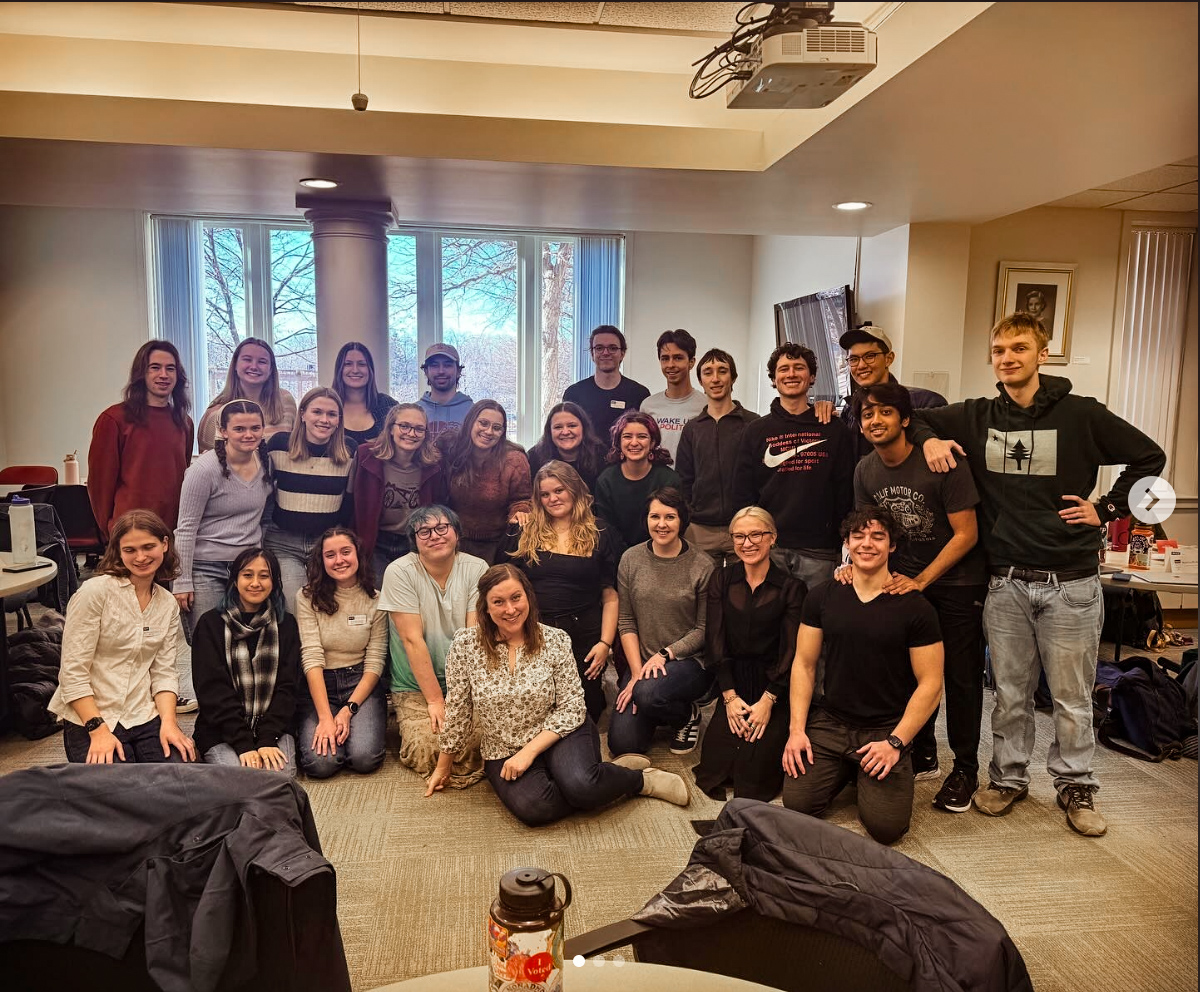From personal passion projects to initiatives that have been in the works for semesters, Macalester College Student Government (MCSG) representatives are working towards providing new resources to students and increasing engagement with both MCSG and Macalester more broadly this spring semester.
This semester, MCSG President Mariah Loeffler-Kemp ’24 hopes to increase student engagement with various issues on campus, such as implementing the strategic plan, which includes plans to demolish and relocate the Cultural House, build a new residence hall and renovate the campus center, among other changes.
Loeffler-Kemp shared that she plans on achieving this by “making sure that students are on all the [implementation] committees, and are being asked about the changes and their voices are actually being heard. Not just listened to, but heard.”
This goal of increased engagement extends to engagement with MCSG itself. Academic Affairs Committee (AAC) Chair Joel Sadofsky ’25 hopes to see increased voter participation in this semester’s upcoming Executive Board elections.
“Another hope is that we are getting people engaged in elections, especially for Executive Board,” Sadofsky said. “Having effective people on all those campus committees is really, really critical to pushing for transparency and student voice in decisions.”
Currently, Loeffler-Kemp and Vice President Emma Kopplin ’24 are piloting a program that offers academic credit for their work in MCSG in the form of an independent study with Vice President for Student Affairs Kathryn Kay Coquemont. Loeffler-Kemp and Kopplin believe that their independent study will lay the foundation for Macalester to expand offering academic credit and financial compensation, in the form of a work study, for students.
“We’re thinking about it from an equity standpoint,” Loeffler-Kemp said. “MCSG has always been a bit more white, a little bit more upper-middle class than the student body overall. So, we’re looking at ways to address that, and we think paying people for their time and labor is a good way to do that.”
Kopplin expressed similar sentiments, underscoring her aim for Executive Board members to have the option to receive academic credit through an independent study, or financial compensation through a work study award, in the future.
“I think [offering academic credit for MCSG] is cool, [but] doesn’t fix the equity issue of students not being able to do MCSG because it’s a lot of unpaid work,” Kopplin said. “Some people don’t have the time or the ability to work so much without earning a paycheck.”
Kopplin is also working alongside Tristan Niedzielski ’25 and Health and Wellness Liaison Emma Rohrs ’26 on expanding free, anonymous access to harm-reduction resources, such as Naloxone — which can reverse or reduce the effects of opioids — and fentanyl testing strips. Currently, students can request free fentanyl test strips, among other health resources, to be delivered to their PO box through the Hamre Center’s confidential form. These resources are also available on a table outside the Hamre Center.
“I would love for the [safer sex kits] to be turned into more of harm reduction kits in general,” Kopplin said. “That would include condoms, lube, dental dams, all of that, as well as Naloxone, fentanyl test strips, drug disposal kits [and] that kind of thing.”
Financial Affairs Committee (FAC) Chair Eliora Hansonbrook ’25 is thinking about how MCSG can make further improvements to changes they’ve already made, such as the restructuring MCSG underwent last spring.
“We are looking into analyzing the successes and opportunities made by our restructuring last year,” Hansonbrook said. “We’re very mission-oriented and trying to figure out now that we’ve made all those big changes, what can we do to sort of optimize ourselves within that new framework?”
Cabinet Chair Willow Albano ’26, whose position was created last semester, feels positively about the restructuring. They shared that they’ve been able to connect liaisons to different resources and support them in their projects, which they discussed in depth at last week’s MCSG meeting.
“What’s been going really well is the community of the Cabinet … We’re always very gung ho about our Cabinet meetings, which is nice,” Albano said. “And of course, anyone’s welcome. We love having new people and adding diversity to our roster.”
Sadofsky shares similar goals of engagement in regards to implementing the automatic textbook billing contract that Macalester recently signed with Barnes & Noble College. AAC is currently working on ensuring a student representative sits on the contract’s implementation committee and continuing to build the Course Reserve Program, which Sadofsky stated will continue to function for the immediate future.
“While I understand that the textbook contract is the big, exciting, controversial issue for AAC right now, I have a personal goal of not letting that take up more than 50% of our meeting time,” Sadofsky said. “We also have other things to spend our energy on, and I want us to do more than just react to administrative decisions.”
AAC is also working on buying more test prep books to provide support beyond its Graduate School Application Test (GSAT) program and potentially reviving the alumni networking fair.
This semester, FAC is aiming to revise their Financial Code before Budget Bonanza, the annual process in which student organizations request funding from MCSG for the next academic year. Hansonbrook noted this goal is particularly ambitious, as the Budget Bonanza process begins in March but believes that, if FAC is successful in revising the Financial Code, the process will run more smoothly.
“Every year we notice things [in the Financial Code] that need to be updated or changed around a little bit,” Hansonbrook said. “I think it’s going to result in a much better experience for org leaders who are submitting their budgets, if we are successful in getting it ready on time.”
Student Organizations Committee (SOC) Chair Mikayla Giehler ’24 shared that SOC is checking in with student organizations that are preparing for their audit process, as all student organizations must complete an audit process every three years. They are also working with orgs to strengthen their charters and to ensure each org’s charter outlines their mission and organizational structure.
Giehler also hopes that SOC will be able to hold a field day once the weather warms up, which strikes at one of Giehler’s favorite aspects of interacting with students as a representative.
“Obviously, MCSG does important things, but I also like when we’re people and we’re also students who have fun,” Giehler said. “I like when we can do events that bring awareness to MCSG that are also a good time.”






